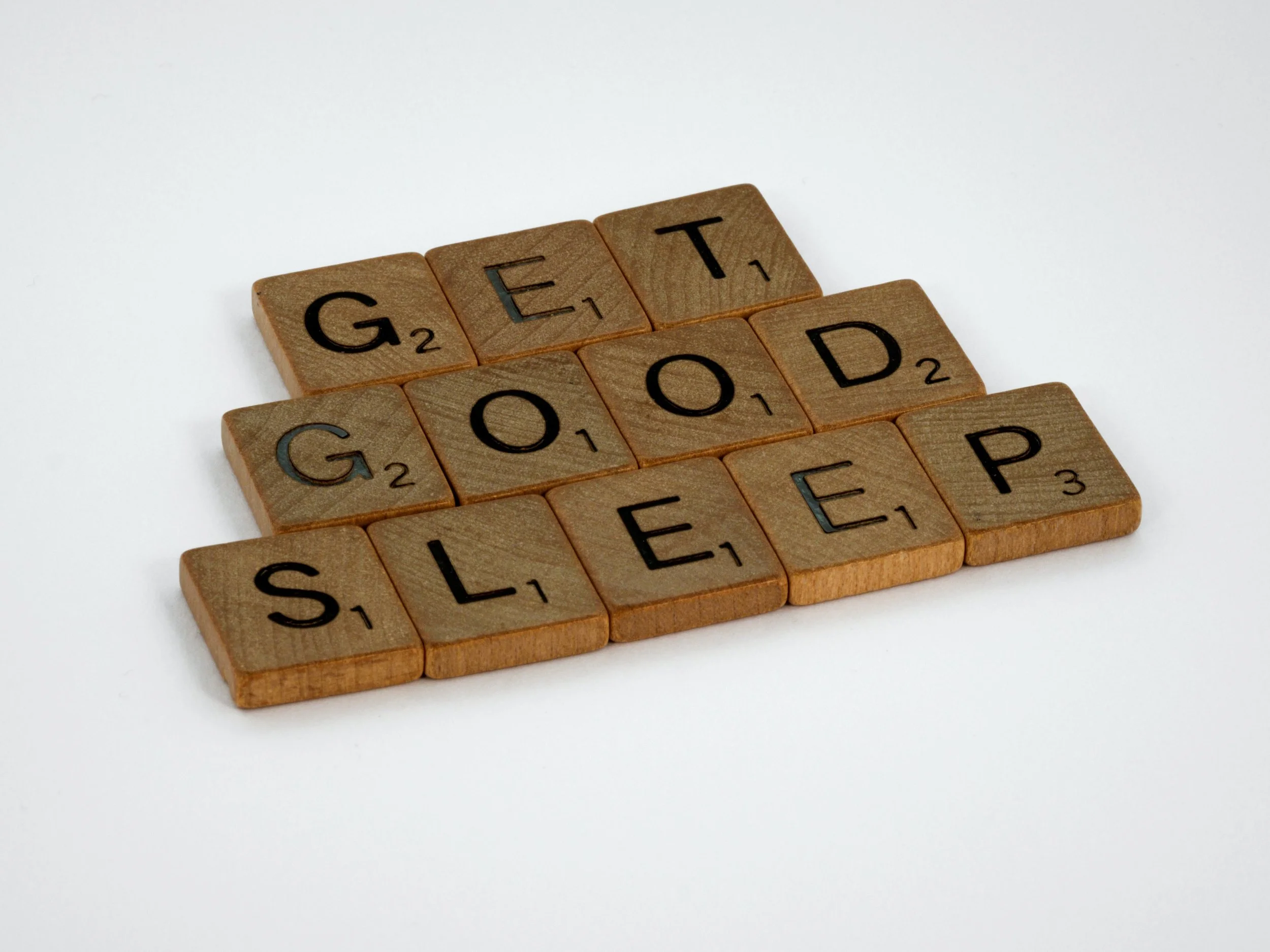How do You Get Rid of Brain Fog in Menopause Naturally? 15 Ways
Menopause brain fog.
You walk into a room and forget why. You can’t remember the name of someone you have just been introduced to and feel mortified or, you are fed up with constantly looking for things you have just had and can’t remember where you put them.
These everyday occurrences seem innocuous enough but you can’t get rid of the nagging feeling that something is wrong with you and you are starting to lose your memory at a young age.
This is a scenario many women in their early forties will be experiencing. This constant brain fog that they seem to be living in is a symptom of perimenopause. You are not alone though as Menopause and mental disorientation are genuine and far more common than many think.
This almost “cotton wool” feeling that the brain has - that’s what it felt like for me, anyway can start to affect all areas of life, from concentrating at work to coping with home life.
The symptoms that brain fog encompasses can seem so severe that for anyone who has a history of dementia or other mental illness in their family, it can seem as if they are following the same route.
What are the signs of brain fog?
The term “brain fog” is an umbrella term for several conditions that can affect your brain and how it works.
This includes a lack of mental clarity when you struggle to act in the way that you are used to, not being able to think clearly.
Mental confusion and feeling disoriented, difficulties in concentrating on everyday tasks, losing your train of thought, your brain drifting off constantly and a temporary lapse of memory.
All of these symptoms can be distressing, embarrassing and scary and can leave you feeling that you are not able to go about your day-to-day duties, work to your expected level or even at times hold a conversation.
What causes menopause brain fog?
Brain fog, like many other symptoms of menopause, is caused by several factors;
Fluctuating oestrogen levels- Oestrogen stimulates the brain and works to keep the neurons firing within it. It maintains the production of new cells and the working order of existing brain cells.
Dehydration - The brain is made up of 75% water. When we are dehydrated, the brain mass can shrink which in turn affects the function of the brain.
Blood sugar levels - The brain uses a lot of energy daily, 20% in fact. During perimenopause, the hormone changes that take place in the body can drain energy, meaning there is less available for the brain, which affects all cognitive functions. Glucose is the brain’s main food source, so a drop in blood sugar levels means the brain won’t be performing correctly.
Poor sleep quality - Sleep is fundamental to well-being. A lack of sleep can contribute to memory loss. It is during the REM sleep stage that the brain stores memories and processes information from your day, so a lack of sleep will interfere with this stage of cognitive activity.
Testosterone levels - Testosterone is an important hormone in the female body, especially the brain. It strengthens nerves in the brain and aids mental clarity and sharpness. It supports the arteries in the body that supply the brain with blood an essential requirement to prevent memory loss.
What menopausal brain fog feels like
Brain fog will appear differently to each individual. Some women will experience mild symptoms of forgetfulness, whilst others will suffer more severely. The good news is that research has indicated that memory loss will return during postmenopause, and research has indicated that cognitive issues showed great improvement after menopause.
How to treat brain fog in menopause
There are lots of things that you can do yourself to treat brain fog during peri/menopause.
Take exercise regularly
We all know the benefits of exercise at any age, but it is especially important during peri/menopause. Exercise promotes the release of protein in the brain, which enables brain function.
It helps with stress anxiety and depression which can affect sleep quality.
Regular exercise, especially 3 cardio sessions a week, can aid in the growth of the hippocampus, a section of the brain that is involved in learning and memory function.
Adopt a Mediterranean-style diet
It’s long been established that the Mediterranean diet is beneficial for health and longevity, and it is also good for brain fog during perimenopause. A Mediterranean diet has long been shown to be good for the brain with the protective properties of omega-3 oils and no saturated fats.
Studies have shown that this style of eating is linked to slower cognitive decline and also lowers the risk of loss of cognitive function.
Reduce your stress levels
Stress causes many serious illnesses in the body, something that most of us are well aware of. Studies have shown that anxiety causes simple tasks to appear more difficult. Stress and anxiety take up more energy in the brain, causing other cognitive functions to suffer.
Reducing stress levels in the body will help brain fog to be lessened.
Keep your mind active
As with other muscles in the body, using the brain will keep it fit and healthy. Keeping the mind active is a great way to aid cognitive abilities. In the same way that physical activity helps the body to stay fit and well, mental activity will help the mind to stay fit and well.
Try puzzles, reading, crosswords, sudoku, or anything that gets you thinking and the mind active.
Make sure you get sufficient sleep each night
Sleep really is a superpower and helps ward off many physical ailments and also helps to protect the brain against loss of cognitive function. If you suffer from poor sleep then you need to address your sleep patterns to see how they can be improved.
Look at your sleep/wake cycle, do you go to bed too late? Try going to bed and rising at the same time every day. Avoid alcohol and food too close to bedtime.
Remove electronic devices from the room so you aren’t tempted to look at them if you wake up during the night. Take a warm bath before bed and have a warm milky drink before you settle down.
6. Eat some soy isoflavones
Soy isoflavones are polyphenols that are found in soy products and other plant products. They have been found to interact with estrogen receptors that help brain function.
If you find that you don’t enjoy eating soya products, many supplements can be taken. As with all supplements, you should consult with your doctor before taking them.
7. Use Ginkgo Biloba
Ginkgo biloba is an extract taken from the leaves of the ginkgo tree native to China. It is a powerful antioxidant that fights free radicals in the body.
There is also some evidence to suggest that it can aid in cognitive functioning, such as memory retention.
8. Reduce your alcohol consumption
Many of us enjoy a glass of wine at the weekend. A drink to relax and unwind after a hectic week. As we get older though, we must start to reduce our alcohol consumption. Alcohol can be damaging to the brain as well as other parts of the body.
Too much alcohol can cause memory loss and impaired cognitive function. It can also be very dehydrating, cause stress levels to be raised and impair sleep.
9. Avoid dehydration by drinking more water
We can live without many things in life for some time, food, company, social media…but not water. Water is essential to our survival. A woman’s body is made of 55% water and the brain is a large factor in water consumption.
Have you ever noticed that when you are dehydrated, you start to feel lethargic and groggy and have difficulties concentrating? This highlights the importance of drinking enough water daily.
Staying hydrated is one of the quickest and simplest ways of reducing brain fog.
10. Work to avoid experiencing hot flushes
Although hot flushes aren’t a direct cause of brain fog in perimenopause and menopause, they can be a contributing factor. Many women will suffer from hot flushes when they are trying to sleep, thus they can cause broken sleep patterns which can exacerbate brain fog due to lack of sleep.
They can also cause stress and anxiety in women. A sudden hot flush can be very disturbing, uncomfortable and embarrassing, leading to a spike in anxiety and stress which can affect brain fog.
Try working on reducing hot flushes by taking supplements such as black cohosh, wearing loose cotton clothing, avoiding hot, spicy food and caffeine and maintaining a healthy weight.
11. Use memory aids (like rhymes and associations)
If you find that your short-term memory is affected by brain fog, then try using memory aids to help you retain information.
This can be a quick, yet effective way of remembering. Try rhymes or word associations to help.
12. Slow yourself down to allow your brain to work properly
Ever noticed when you are rushing around how much more flustered you become, the more you forget and the more prone to making mistakes you are?
If you are finding that you are dealing with menopausal brain fog, try slowing down. Instead of racing through the day trying to get everything done, organise your day so that you can do tasks slowly and methodically.
This way, you won’t put as much strain on yourself, you will be less likely to forget and you won’t feel as flustered. You will find that your brain starts to work more effectively and overall you will function much better, cutting down on stress and anxiety and not tiring yourself out as much.
13. Learn to control your breathing
When someone suffers from panic attacks and anxiety, one of the first things that they are always told is to learn to control their breathing.
The breath has an amazing capacity to be able to slow the mind and body down and get everything back under control.
When you find that you are suffering from brain fog, take a few minutes out and practise some controlled breathing; breathe in for the count of four, hold for four and breathe out for the count of four.
This should start to aid in reducing anxiety and helping with brain fog.
14. Eat more complex carbs
Many people aren’t aware of the effect that carbohydrates have on the brain. Blood sugar levels have an impact on the brain, what we put into our bodies, affects how our bodies work. When we suffer from a sugar crash, our brains can be left feeling foggy and disorientated, our memory is impaired and we can feel anxious and depressed.
Therefore, you must fuel your body in the right way to stop these occurrences from happening. The brain feeds off glucose, in fact, neurons require twice as much energy to work than other cells.
Carbohydrates are the best source of energy to feed the brain, but unlike other parts of the body, the brain can’t store these carbohydrates so you need to eat the right food at the right time to sustain good cognitive function.
Eating bad carbs, such as sweets or white bread, which are the carbs that give you a sugar high and then a big crash is totally the wrong food to eat to sustain the brain. The brain needs slow-release complex carbs to make sure that the energy levels are sustained at a steady pace throughout the day.
15. Seek the help of a life coach
A life coach can help in many ways when it comes to dealing with menopausal brain fog. Having someone who is there to listen to you and discuss things with can help with many of the feelings of stress and anxiety that brain fog can bring on.
They can also offer solution-focused ideas and tools that can be used to deal with brain fog.
A life coach is there to hold you accountable when you are trying to turn your life around. They can aid in weight loss brought on by menopause or help deal with feelings of emotional burnout, not knowing what direction to take or just day-to-day living that can all add to stress and anxiety.
Discover how the Menopause Coaching Programme can help you.
Final Thoughts
Menopausal brain fog can be a debilitating and distressing symptom for many women but there are many ways that you can fight back against it.
By eating a diet rich in omega-3 oils, eating complex carbs and cutting out refined sugars and processed foods you can give yourself the best opportunity.
Sleeping well, exercising, cutting down on stress and anxiety, and taking care of your overall health and well-being will aid in combating brain fog during this time.
This is a condition which will improve with age, and there are many steps that you can take to make it as easy as possible.
Remember, you are not alone, there are many places to seek help and advice, talk to loved ones and tell them of your concerns and worries so that they can help you through, practice self-care and listen to what your body needs, slow down and never be too hard on yourself.
If you would like to listen to the audio version of the blog post click below;
If you have enjoyed reading this blog post or have any thoughts on brain fog in menopause please comment and share









